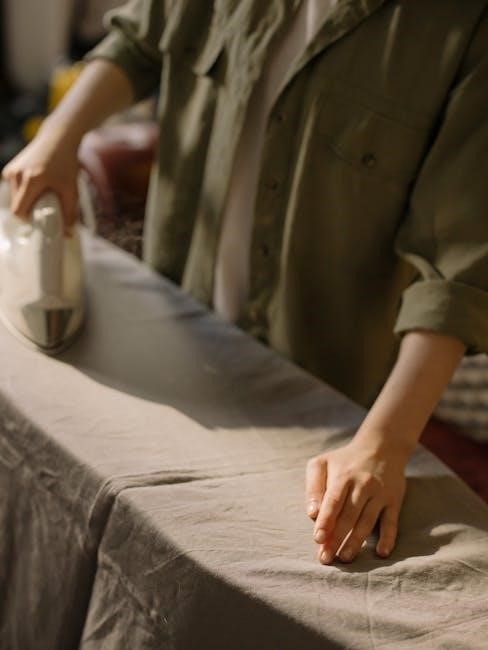
Crossword puzzles are word games with a grid of squares and clues‚ requiring players to fill in words that intersect horizontally and vertically. Originating in 1913‚ they’ve become a popular cognitive exercise‚ enhancing vocabulary and problem-solving skills while providing entertainment for millions worldwide.
1.1. Definition and Purpose of Crossword Puzzles
A crossword puzzle is a word game featuring a grid of squares where players fill in words based on clues. The purpose is to challenge vocabulary‚ memory‚ and problem-solving skills. Originating in 1913‚ crosswords aim to entertain while stimulating mental activity. They typically involve intersecting words horizontally and vertically‚ with clues ranging from simple definitions to complex puns or anagrams. Solving crosswords enhances cognitive abilities and provides a rewarding‚ intellectually engaging pastime for millions worldwide.
1.2. Brief History of Crossword Puzzles
The first crossword puzzle‚ called “Word-Cross‚” was created by Arthur Wynne and published on December 21‚ 1913‚ in The New York World; It was diamond-shaped and introduced a new form of word game. By the 1920s‚ crosswords became a staple in newspapers‚ with the first book of puzzles published in 1924. The 1930s saw crosswords become a national phenomenon‚ evolving into various formats like themed and cryptic crosswords. Today‚ they remain a beloved pastime‚ available in print and digital forms‚ continuing to challenge and entertain millions worldwide.
1.3. Popularity and Cultural Impact
Crossword puzzles have become a beloved pastime worldwide‚ appearing regularly in newspapers‚ magazines‚ and online platforms. Their widespread appeal lies in their ability to challenge the mind while providing entertainment. Crosswords have also influenced popular culture‚ often referenced in films‚ books‚ and TV shows. They serve as a cognitive exercise‚ enhancing vocabulary and problem-solving skills‚ while fostering a sense of community among enthusiasts. Their enduring popularity underscores their significance as both a mental stimulant and a cultural phenomenon enjoyed by people of all ages.
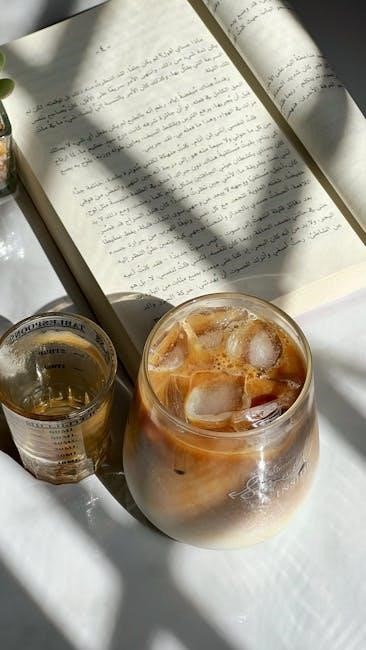
Understanding the Clue “Keep Time Manually”
The clue “Keep Time Manually” refers to the action of winding a clock‚ often associated with the word wind‚ a common 4-letter crossword answer.
2.1. Breaking Down the Clue
The clue “Keep Time Manually” can be analyzed by focusing on key words: “keep‚” “time‚” and “manually.” These words suggest an action related to maintaining or managing time without automation. The term “manually” indicates a hands-on approach‚ while “keep time” often refers to winding or setting a clock. This breakdown leads to common crossword answers like wind or set‚ which fit both the literal and metaphorical interpretations of the clue. This method ensures a systematic approach to solving such crossword puzzles effectively.
2.2. Possible Interpretations
The clue “Keep Time Manually” can have multiple interpretations. One common interpretation is winding a clock‚ leading to answers like wind or set. Another possibility is manually recording time‚ suggesting words like log or track. Additionally‚ in music‚ “keep time” refers to maintaining rhythm‚ which might link to terms like beat or tempo. Each interpretation offers a different angle‚ making it essential to consider the crossword’s context and surrounding clues to determine the most fitting answer. This versatility highlights the complexity of crossword puzzles.
2.3. Common Synonyms and Related Terms
The clue “Keep Time Manually” can be linked to synonyms like wind‚ set‚ or nag. Terms like maintain‚ sustain‚ or upkeep relate to “keep‚” while moment‚ duration‚ or schedule connect to “time.” Additionally‚ words like clock‚ rhythm‚ or tempo may fit‚ depending on the context. These synonyms and related terms can guide solvers to the correct answer‚ often a short word like nag or wind‚ making it easier to fill in the crossword grid accurately.
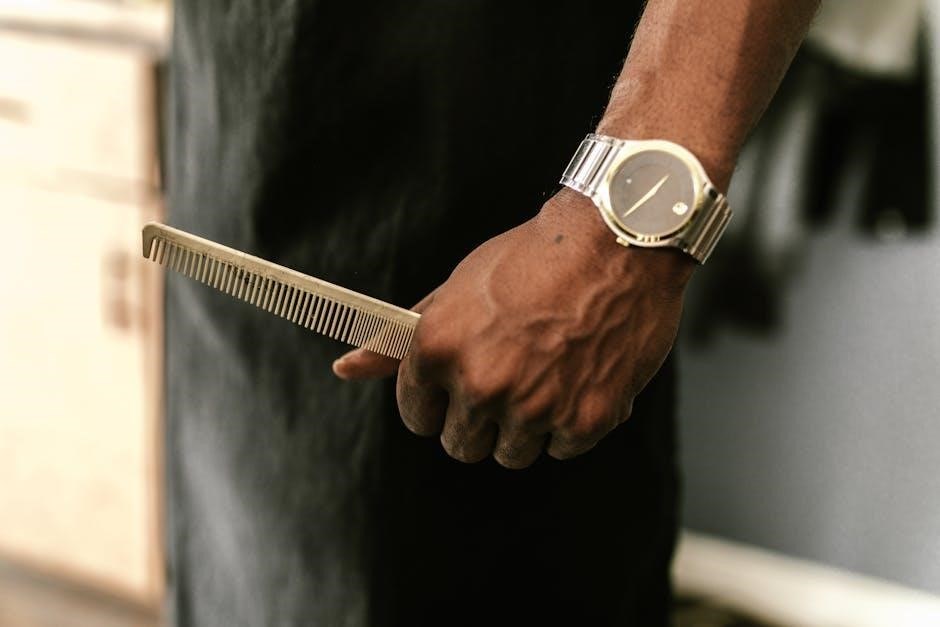
Crossword Clue Types and Structures
Crossword clues vary in structure‚ ranging from straightforward definitions to complex puns or anagrams. They often rely on wordplay‚ requiring solvers to think creatively to uncover hidden meanings.
3.1. Types of Crossword Clues
Crossword clues come in various forms‚ each designed to challenge solvers differently. Definition clues provide straightforward explanations‚ while anagram clues require rearranging letters. Pun clues rely on wordplay‚ and cryptic clues use indirect hints. Some clues are literal‚ others figurative‚ and themed clues tie into a puzzle’s overarching theme. solvers must decode these clues creatively‚ often using word roots‚ synonyms‚ or lateral thinking. The diversity of clue types keeps crosswords engaging and intellectually stimulating for enthusiasts of all skill levels.
3.2. How Clues Relate to Answers
Crossword clues are carefully crafted to guide solvers to specific answers‚ often through indirect or creative language. For example‚ the clue “Keep time manually” might lead to the answer “tap‚” implying tapping one’s foot. Clues can be direct definitions‚ puns‚ or anagrams‚ each requiring solvers to think differently. The relationship between clue and answer demands understanding wordplay‚ synonyms‚ and context. This dynamic challenges the mind and enhances problem-solving skills‚ making crosswords both entertaining and intellectually rewarding for enthusiasts aiming to improve their abilities.
Crossword clues often follow recognizable patterns‚ such as definitions‚ anagrams‚ or wordplay. For instance‚ the clue “Keep time manually” uses wordplay to hint at the answer “tap.” Other patterns include synonyms‚ antonyms‚ and phrases. Clues may also incorporate pun or double meanings‚ requiring solvers to think creatively. Recognizing these patterns helps solvers decipher answers more efficiently‚ enhancing their overall crossword-solving experience and making the process both challenging and enjoyable for enthusiasts of all skill levels. Effective strategies include analyzing word lengths‚ using context clues‚ and eliminating unlikely options; For “Keep time manually‚” considering synonyms like “tap” can lead to the solution efficiently. To solve “Keep time manually‚” start by noting the clue’s word length. If the answer is three letters‚ consider common abbreviations or short verbs. Look for letters that frequently appear in crossword answers‚ such as vowels or consonants like T or N. Cross-referencing with intersecting clues can help narrow down possibilities. Pay attention to word patterns and potential anagrams. This methodical approach increases the chances of identifying the correct answer efficiently. When solving “Keep time manually‚” examine the surrounding clues and completed letters in the grid. Crossword puzzles often rely on intersecting words to reveal answers. Look for partial words or common letter patterns near the clue. For example‚ if the clue intersects with a word ending in “-ing‚” it might hint at a verb. Pay attention to word lengths and prefixes/suffixes that align with the clue’s meaning. Contextual clues‚ such as synonyms or related terms‚ can also guide you toward the correct answer‚ like “NAG” for manual timing. Elimination is a powerful strategy in solving crossword clues like “Keep time manually.” Start by identifying letters you know from intersecting words‚ then eliminate impossible options. For example‚ if a word must be three letters and start with “N‚” consider “NAG” as a likely fit. Cross-referencing with clue patterns and common crossword answers helps narrow possibilities. By systematically removing unlikely choices‚ you increase the odds of landing on the correct answer‚ making the process efficient and effective for even the toughest puzzles. Crossword solvers can utilize online tools like Crossword Solver by WordFind.org‚ which helps find answers by entering clues or partial words. Additionally‚ dictionaries and thesauruses are invaluable for expanding vocabulary and understanding word meanings‚ aiding in solving tricky clues such as “Keep time manually.” These resources enhance problem-solving skills and make crossword puzzles more enjoyable and accessible for enthusiasts of all levels. Crossword solver websites are essential tools for enthusiasts‚ providing quick solutions to tricky clues. Websites like WordFind.org and Crossword Heaven allow users to input clues or partial answers‚ generating a list of possible solutions. These platforms are accessible on both desktop and mobile‚ making them convenient for solvers on the go. By entering the clue “Keep time manually” or a partial word‚ users can instantly find answers like “NAG” or other related terms. These resources are invaluable for overcoming stubborn clues and enhancing solving efficiency. Mobile apps like Crossword Heaven and WordFind.org offer convenient solutions for crossword enthusiasts on the go. These apps allow users to input clues or partial answers‚ providing instant solutions. For example‚ entering “Keep time manually” might yield “NAG” as a likely answer. With features like clue search and answer generation‚ these apps enhance solving experiences. They are accessible on both iOS and Android‚ making them indispensable tools for crossword lovers seeking quick assistance anytime‚ anywhere. These apps ensure that solvers never hit a dead end. Dictionaries and thesauruses are vital tools for crossword solvers‚ helping to expand vocabulary and find synonyms. They provide clear definitions and usage examples‚ essential for understanding clues like “Keep time manually.” Thesauruses‚ in particular‚ aid in identifying alternative words‚ while dictionaries confirm spellings and meanings. These resources are indispensable for both casual solvers and experts‚ ensuring accuracy and efficiency in solving crossword puzzles. They complement online solvers‚ offering deeper linguistic insights and enhancing overall problem-solving skills. Wordplay is central to crosswords‚ employing puns‚ anagrams‚ and double meanings. Clues like “Keep time manually” rely on clever interpretation‚ challenging solvers to think creatively. Puns and double meanings are staples in crossword clues‚ adding layers of complexity and fun. For example‚ the clue “Keep time manually” plays on the dual meaning of “keep time”—both maintaining rhythm and physically holding something. This wordplay challenges solvers to think beyond literal interpretations‚ making crosswords a delightful test of linguistic agility and creativity. Such clever twists keep puzzles engaging and rewarding‚ as they require a sharp mind and a keen ear for language. Anagrams and reversed words are clever devices used in crosswords to add complexity and challenge. Anagrams require rearranging letters to form a new word‚ while reversed words are simply spelled backward. These techniques often lead to “aha!” moments‚ as solvers uncover hidden meanings. For instance‚ the clue “Keep time manually” might involve rearranging letters to find the answer‚ adding layers of fun and intellectual exercise to the puzzle-solving experience. Such wordplay keeps crosswords engaging and mentally stimulating. Cryptic clues are renowned for their intricate and layered meanings‚ often combining wordplay and indirect references. They require solvers to decipher hints that may involve puns‚ anagrams‚ or double meanings. For example‚ “Keep time manually” might hint at a word like “metronome‚” blending the idea of keeping rhythm with manual operation. These clues challenge solvers to think creatively and make connections between seemingly unrelated concepts‚ making them a hallmark of advanced crosswords and a favorite among experienced puzzle enthusiasts seeking a mental challenge. To improve crossword skills‚ expand your vocabulary‚ practice regularly‚ and learn common patterns. Pay attention to wordplay‚ anagrams‚ and puns. Use online tools like crossword solvers and dictionaries to find clues and answers efficiently. Join crossword communities to share tips and strategies with other enthusiasts. Consistent practice enhances problem-solving abilities and boosts overall performance in tackling both simple and complex puzzles effectively. Expanding vocabulary is crucial for mastering crosswords. By learning new words and their meanings‚ solvers can tackle clues more confidently. Regular reading‚ especially of diverse texts like novels and articles‚ exposes players to a wide range of terms. Additionally‚ using dictionaries and thesauruses helps deepen understanding of synonyms and wordplay‚ which are often key to solving crossword clues. Over time‚ this practice not only enhances crossword skills but also improves overall communication and cognitive abilities. Consistent learning ensures better performance in both casual and competitive settings. Regular practice is essential for improving crossword skills. Solving puzzles daily or weekly helps build familiarity with clue styles and common patterns. Consistent practice enhances problem-solving abilities and sharpens critical thinking. Over time‚ regular practice fosters confidence and speed‚ making even challenging clues more approachable. It also reinforces vocabulary expansion and pattern recognition‚ which are key to mastering crosswords. By incorporating practice into a routine‚ solvers can gradually improve their skills and enjoy the puzzles more thoroughly. Regular engagement keeps the mind sharp and ready for new challenges. Mastering common crossword patterns significantly aids in solving clues efficiently. Recognizing anagrams‚ reversals‚ and synonyms is crucial‚ as these are frequently used in puzzles. Learning to identify word lengths and letter placements helps narrow down possible answers. Familiarity with clue structures‚ such as puns or double meanings‚ also enhances solving speed. By studying these patterns‚ solvers can anticipate answers more accurately‚ making the process less frustrating and more enjoyable. Understanding these techniques is a cornerstone of crossword mastery and boosts overall problem-solving skills. Regular exposure to puzzles reinforces this knowledge. The crossword clue “Keep time manually” likely refers to the action of winding a clock‚ which is done by hand. The answer is “wind.” Crossword puzzles‚ like solving the “Keep time manually” clue‚ offer significant cognitive benefits. They enhance memory‚ attention‚ and processing speed by stimulating the brain’s language centers. Regularly engaging in crosswords improves problem-solving skills and boosts mental agility. Additionally‚ crosswords can delay cognitive decline and reduce the risk of dementia. The mental exercise strengthens neural connections‚ promoting better cognitive health overall. These benefits make crosswords a valuable tool for maintaining sharp mental acuity and intellectual function across all age groups. Solving crossword clues‚ such as “Keep time manually‚” sharpens problem-solving and critical thinking skills. Players must analyze clues‚ consider multiple interpretations‚ and use wordplay to find answers. This process enhances logical reasoning and the ability to connect seemingly unrelated concepts. Crosswords often require trial and error‚ teaching persistence and adaptability. The mental challenge of deciphering clues strengthens analytical abilities‚ making crosswords an excellent tool for improving cognitive flexibility and sharpness. Regular practice can lead to faster problem-solving in everyday situations. Engaging with crossword clues‚ such as “Keep time manually‚” offers a calming mental escape‚ reducing stress and enhancing focus. The meditative nature of solving puzzles distracts from daily worries‚ providing a therapeutic outlet. Crosswords require concentrated attention‚ which can improve focus and reduce anxiety. The satisfaction of uncovering answers boosts mood and mental clarity. Regular puzzle-solving fosters mindfulness and relaxation‚ making it an effective way to unwind and sharpen cognitive abilities simultaneously. This mental exercise promotes emotional well-being and intellectual growth. Common mistakes include rushing through clues‚ misinterpreting hints‚ and ignoring crossword etiquette. Overlooking obvious answers and misreading clues can lead to incorrect solutions and frustration. One common mistake is overlooking obvious answers‚ often due to overcomplicating the clue. For instance‚ the clue “Keep time manually” might seem complex‚ but the answer could be straightforward‚ like “tap.” Solvers might dismiss simple solutions‚ thinking the answer must be more intricate. This tendency leads to frustration when the correct word is right under their nose. Training oneself to consider both simple and complex interpretations helps avoid this pitfall. Regular practice and patience are key to improving this aspect of crossword solving. Misinterpreting clues is a common mistake‚ often due to reading the clue too literally or missing its subtle wordplay. For example‚ “Keep time manually” might be misunderstood as relating to music or schedules‚ while the actual answer‚ like “tap‚” refers to manual action. Solvers may overlook the clue’s intended meaning‚ leading to incorrect answers. This highlights the importance of analyzing clues from multiple angles and considering both literal and figurative interpretations. A systematic approach to clue analysis can help reduce such errors and improve solving accuracy. Ignoring crossword etiquette can hinder the solving experience and frustrate others. Common mistakes include rushing through clues without proper analysis‚ guessing answers without logical reasoning‚ and failing to respect the puzzle’s intended difficulty level. Some solvers may also overlook the importance of accurate notation or disregard the rules of fair play‚ such as sharing answers prematurely. Etiquette breaches can lead to errors and a less enjoyable process. Patience and adherence to norms are key to maintaining the integrity and satisfaction of crossword solving. Advanced techniques involve mastering grid patterns‚ identifying theme-related answers‚ and solving cryptic clues. These skills enhance problem-solving abilities and deepen the enjoyment of crossword puzzles. Understanding grid patterns is crucial for advanced solvers. Recognizing shapes like standard squares‚ themed designs‚ or irregular layouts helps in placing words effectively. Paying attention to black square distribution and common word lengths can reveal hidden patterns. Experienced solvers use these insights to fill in tricky sections‚ especially when clues are vague. Mastering grid analysis improves efficiency and accuracy‚ making even the most challenging puzzles more approachable. This skill is essential for competitive solvers aiming to complete crosswords swiftly and accurately. Themed crosswords often revolve around a central topic‚ requiring solvers to identify answers tied to the theme. For instance‚ if the theme is music‚ clues might relate to instruments or genres. Recognizing these connections helps narrow down possibilities. In the case of “keep time manually‚” the answer “NAG” fits as a three-letter word implying persistent reminders‚ aligning with the theme of time management. Advanced solvers use pattern recognition and wordplay to uncover these thematic links‚ enhancing their solving efficiency and accuracy. Cryptic crosswords are known for their complex clues that require solvers to think creatively. These clues often involve wordplay‚ such as anagrams‚ double meanings‚ or puns. For example‚ the clue “Keep time manually” might be solved by recognizing that “keep” can mean “nag‚” leading to the answer “NAG.” This requires deciphering the clue’s hidden meaning and understanding the subtle wordplay involved. Mastering cryptic crosswords demands a sharp mind and a keen ear for language nuances‚ making them both challenging and rewarding for experienced solvers. The future of crosswords lies in digital platforms and AI-generated puzzles‚ offering solvers instant access and personalized challenges. Online communities and competitions continue to thrive.
Digital crossword platforms are revolutionizing how puzzles are enjoyed‚ offering solvers instant access to a vast library of puzzles. These platforms‚ accessible on both desktop and mobile devices‚ allow users to solve crosswords anywhere. Many platforms incorporate features like hint systems‚ timers‚ and progress tracking‚ enhancing the solving experience. They also provide spaces for crossword enthusiasts to share tips and compete‚ fostering a sense of community. Additionally‚ digital platforms enable the creation of interactive puzzles with unique themes and challenges‚ keeping the game fresh and engaging for both casual and dedicated solvers. AI is transforming crossword generation by creating puzzles with unprecedented speed and accuracy. Advanced algorithms can design custom crosswords tailored to specific themes or skill levels. These systems analyze vast linguistic databases to ensure clues are both challenging and solvable. AI-generated crosswords reduce human error and enable the creation of complex‚ theme-based puzzles that cater to diverse audiences. This innovation is making crossword construction more efficient and accessible‚ while maintaining the traditional charm of the game. Crossword communities have flourished online‚ connecting enthusiasts worldwide to share tips‚ discuss puzzles‚ and compete. Annual tournaments‚ like the NYT Crossword Tournament‚ challenge solvers with intricate clues and timed rounds. These events foster camaraderie and showcase problem-solving skills. Online forums and platforms‚ such as Crossword Heaven‚ provide spaces for collaboration and learning. Competitions not only test expertise but also inspire innovation in puzzle design‚ ensuring the tradition of crosswords remains vibrant and engaging for future generations. Crossword communities thrive online‚ uniting enthusiasts to share strategies and discuss challenges. Competitions like the NYT Crossword Tournament test solvers with complex clues and timed puzzles. These events foster collaboration and friendly rivalry‚ while platforms like Crossword Heaven provide resources for learning and improvement. By engaging in these activities‚ participants enhance their skills and contribute to the vibrant‚ evolving world of crossword puzzles. The crossword clue “Keep time manually” suggests an action done without electronic aids. Reflecting on music and dance‚ “tapping” emerges as a likely answer‚ fitting the manual rhythm-keeping context. Embrace the challenge of crosswords as a rewarding mental exercise. Each solved clue‚ like “Keep time manually‚” enhances cognitive skills and vocabulary. Persistence sharpens problem-solving abilities‚ making future puzzles more manageable. The journey through crosswords is as fulfilling as the solutions themselves‚ fostering a lifelong love for wordplay and intellectual growth. Keep solving to unlock new insights and enjoy the satisfaction of overcoming each puzzle’s unique intricacies. Crossword puzzles are a delightful blend of fun and mental challenge‚ offering endless entertainment for word enthusiasts. The clue “Keep time manually” exemplifies the clever wordplay that makes crosswords so engaging. Solving such puzzles fosters creativity‚ intellectual growth‚ and a sense of achievement. Whether you’re a casual solver or a seasoned expert‚ crosswords provide a timeless source of enjoyment‚ connecting people through shared problem-solving experiences. Embrace the thrill of the chase and let the joy of crosswords continue to inspire your mind!3.3. Common Clue Patterns
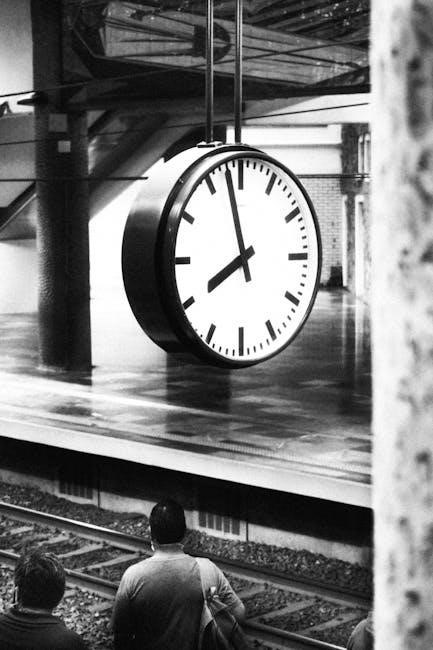
Strategies for Solving Crossword Clues
4.1. Analyzing Word Length and Letters
4.2. Using Context and Surrounding Clues
4.3. Elimination and Process of Elimination
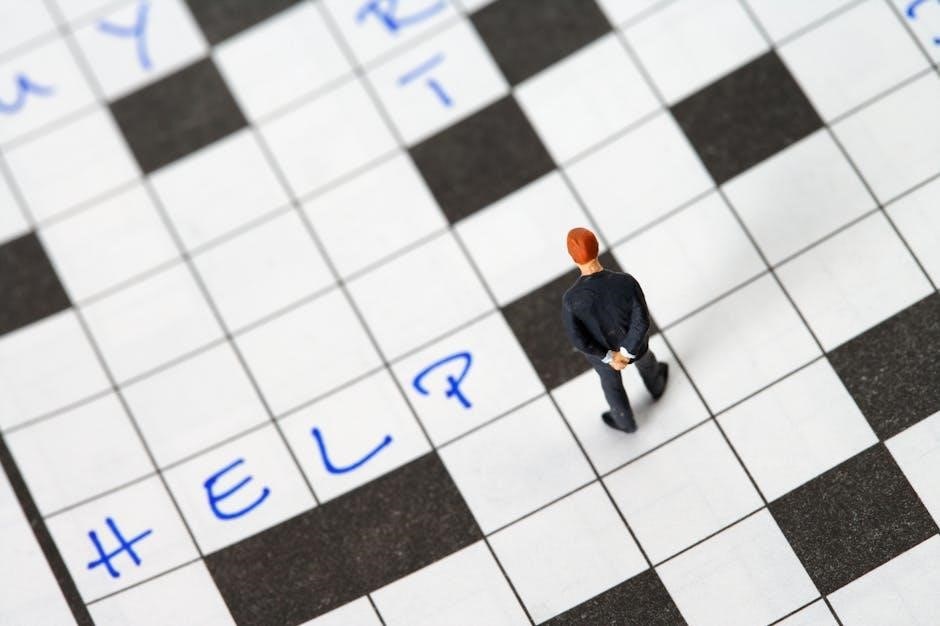
Tools and Resources for Crossword Solvers
5.1. Crossword Solver Websites
5.2. Mobile Apps for Crossword Enthusiasts
5.3. Dictionaries and Thesauruses
The Role of Wordplay in Crosswords
6.1. Puns and Double Meanings
6.2. Anagrams and Reversed Words
6.3. Cryptic Clues and Their Complexity
Tips for Improving Crossword Skills
7.1. Expanding Vocabulary
7.2. Practicing Regularly
7.3. Learning Common Crossword Patterns

The Psychology of Crossword Solving
8.1. Cognitive Benefits
8.2. Problem-Solving and Critical Thinking
8.3. Reducing Stress and Improving Focus
Common Mistakes in Crossword Solving
9.1; Overlooking Obvious Answers
9.2. Misinterpreting Clues
9.3. Ignoring Crossword Etiquette
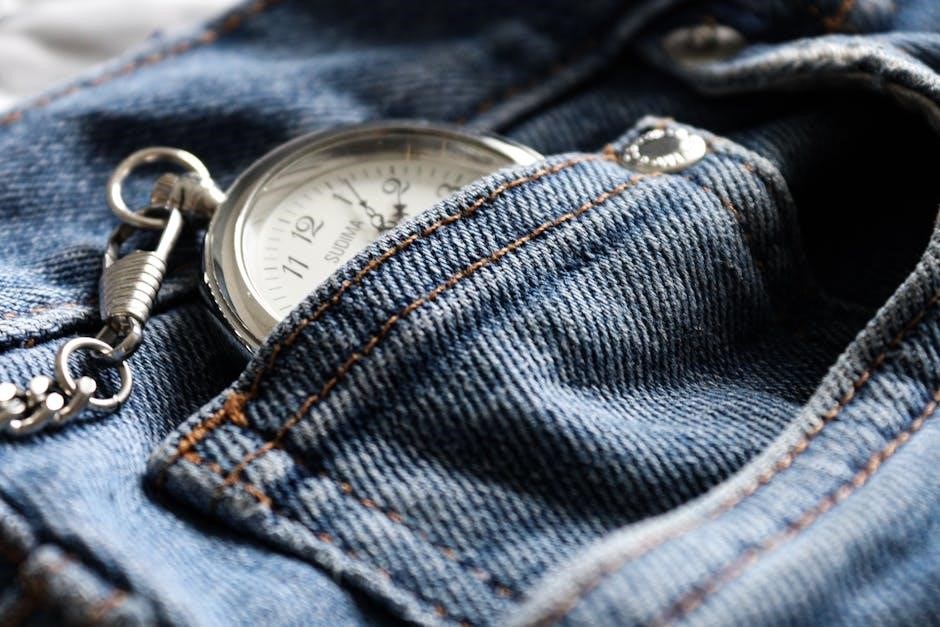
Advanced Crossword Techniques
10.1. Using Crossword Grid Patterns
10.2. Identifying Theme-Related Answers
10.3. Mastering Cryptic Crosswords
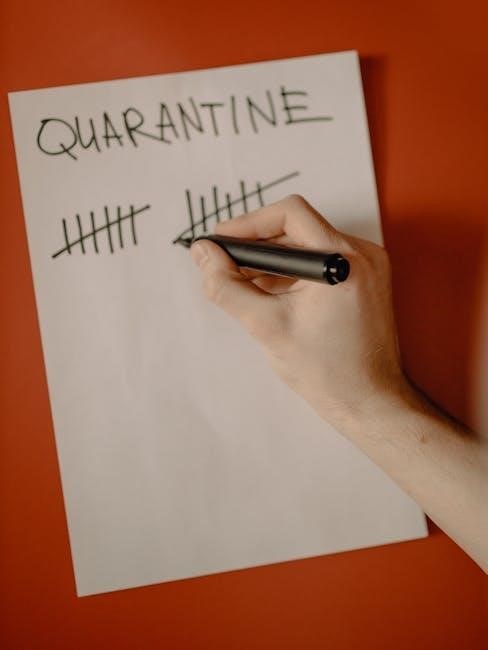
The Future of Crossword Puzzles
11.1. Digital Crossword Platforms
11.2. AI and Crossword Generation
11.3. Crossword Communities and Competitions
12.1. Summary of Key Points
12.2. Encouragement to Keep Solving
12.3. Final Thoughts on Crossword Fun